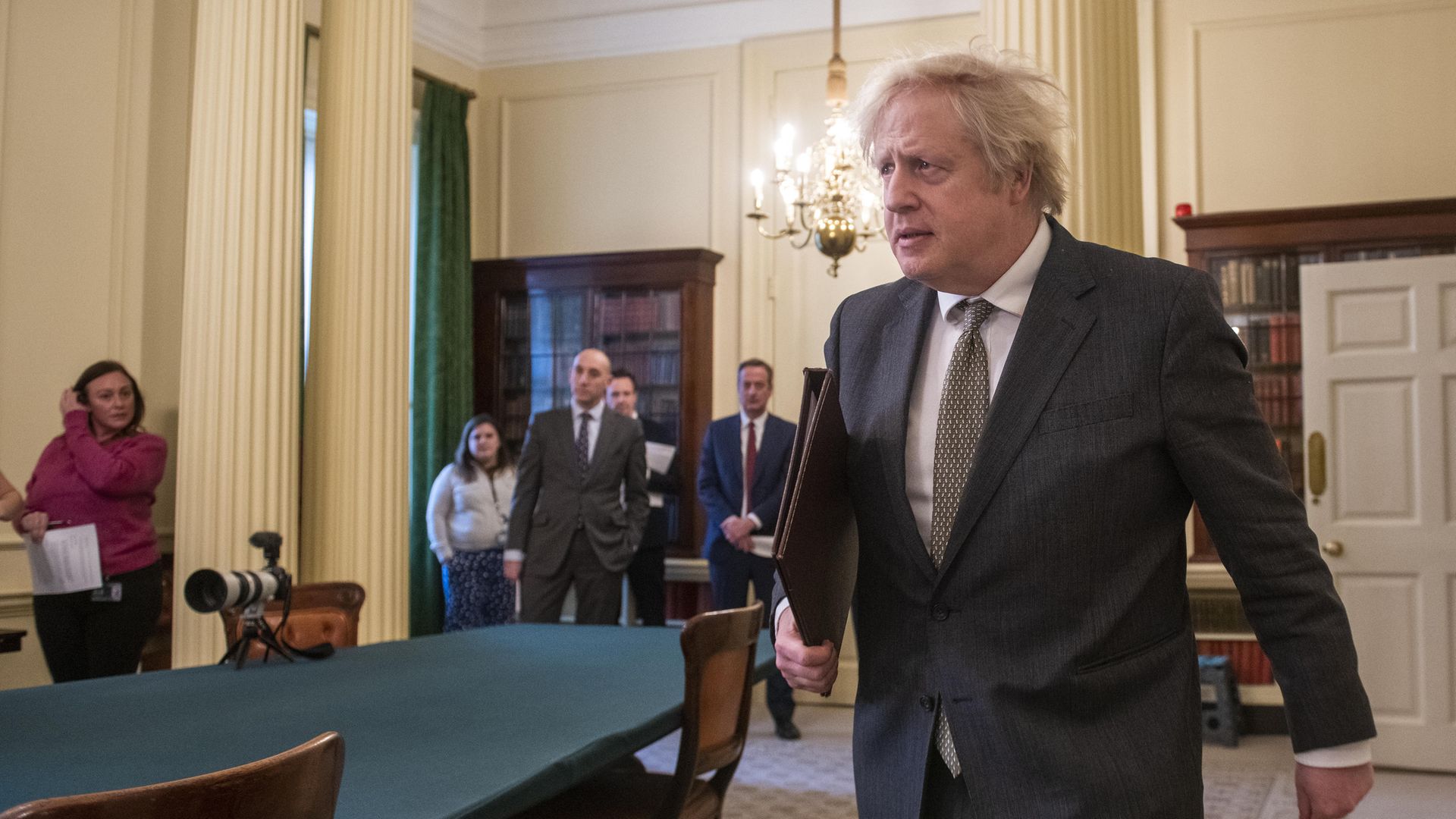
Scientists advising the government fear that a fresh wave of coronavirus cases and deaths could hit the country by July as lockdown lifts – with the most optimistic assumption leading to a further 30,000 deaths.
Documents published by the Scientific Advisory Group for Emergencies (Sage) show how modelling predicts a big rise in cases and deaths if restrictions lift too quickly, even with the continued success of the vaccine programme.
Summarising what the papers show, the government’s chief scientific adviser Sir Patrick Vallance said: “The modelling lays out a series of scenarios.
“None of them are the precise ones which the government ultimately decided to go for, but they lie between those options and that’s the point of the modelling to lay out scenarios, not to point to a single answer.”
He continued: “Vaccines are predicted – as you’d expect and hope – to make a big difference.
“But even with high vaccine levels, and indeed quite high vaccine coverage, it’s important to remember that a large number of people in the population remain unprotected.”
Professor Dame Angela McLean, chief scientific adviser for the Ministry of Defence, added: “If you unlock more slowly, the peak that you get is less high. And I think all of us feel that would be a good thing.
“It’s common sense why that happens, there remain people who have either been not vaccinated, or even though these vaccines are absolutely fantastic, they are not perfect – so there are people who have been vaccinated who nevertheless are not protected from very severe disease.
“So if we’re to let a big epidemic happen among younger people, then some of those vulnerable older people, or people who are vulnerable for another reason, will get infected and will become very ill.”
In a Scientific Pandemic Influenza Group on Modelling (SPI-M) document dated February 17, modelling by the University of Warwick and Imperial College London is set out and says that even under the most optimistic set of assumptions, at least a further 30,000 Covid-19 deaths could occur.
Under some of the models, such as with a rapid relaxation of rules, further death figures would reach well over 100,000.
It continues: “There is the potential for a resurgence to result in a very large number of infections (third wave) if restrictions are lifted early or rapidly which would lead to large numbers of hospitalisations and deaths unless vaccine coverage is very high.
“If all restrictions were to be lifted by the start of May (over a period of around two months, starting in March), hospital occupancy would be highly likely to reach levels higher than at the peak in January 2021, even under optimistic assumptions around vaccine rollout.”
The document says keeping some baseline measures once restrictions are lifted “is almost certain to save many lives” and could include voluntary mask-wearing, avoiding crowds and an effective test and trace system.
The paper says the impact on infections, hospital admissions and deaths are smaller if measures are released when infection levels are lower and if changes are made gradually.
“Relaxing measures later therefore has two benefits; it allows prevalence to be brought down further, and also allows more people to be vaccinated before R (reproduction number) increases.
“The combined effect of these means a significantly smaller resurgence.”
SPI-M says its “consensus view remains that the opening of primary and secondary schools is likely to increase effective R by a factor of 1.1 to 1.5 (10% to 50%)”.
This is partly because opening schools affect the activities and behaviours of parents and other adults as well as children, it said.
The document suggests scientists are at odds with the Government on the timing of schools going back, with all schools set to reopen on March 8.
SPI-M says: “A phased reopening would allow the effects to be assessed which would be particularly valuable if schools were one of the first things to reopen, as there will be more uncertainties in the early stages of releasing measures (e.g. around the impact of vaccines).”
In another document published by Sage, modelling by Imperial College London suggests that due to eligibility and vaccine hesitancy, vaccination alone will not be sufficient to keep the epidemic under control.
The paper sets out that non-pharmaceutical interventions, measures like social distancing and mask-wearing, must be lifted slowly and cautiously to minimise the number of deaths and prevent high hospital occupancy.
According to scientists, some measures may need to stay in place throughout 2021 and beyond.









